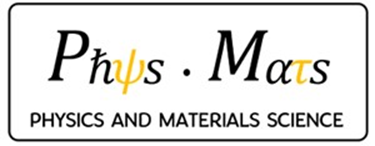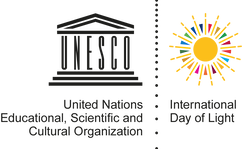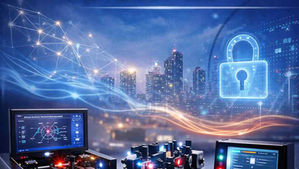(Q&A session) | Prospects in quantum communication within the Paris ecosystem | #IYQ2025 & #ThaiYQ2025 | Eleni Diamanti | Oct 16, 2025 |
- K Sripimanwat

- 16 ต.ค. 2568
- ยาว 6 นาที
อัปเดตเมื่อ 25 ธ.ค. 2568
๐ August 2025 ๐
(Questions & Answers - บรรยายและคำถามคำตอบ)
หัวข้อประจำเดือนตุลาคม ๒๕๖๘
สนทนา #IYQ2025 & #ThaiYQ2025
(Q & A session: by - K Sripimanwat, Q-Thai.Org forum)
We are delighted to welcome you to the #IYQ2025 & #ThaiYQ2025 Q&A session. We are deeply grateful for your insightful presentation delivered in your esteemed capacity as a CNRS Research Director at Sorbonne University and Director of the Paris Center for Quantum Technologies (PCQT). Drawing upon your rich experience from previous speaking engagements, we have prepared the following questions. Please share your insight.
Q1: From your presentation, the Paris Center for Quantum Technologies (PCQT) effectively coordinates with 23 research labs, five major universities, and a network of international partnerships. Could you kindly elaborate on the specific governance model or agreement employed to manage Intellectual Property (IP) ownership and ensure fair prioritization of research themes within such a diverse consortium? Additionally, how are the outcomes measured for long-term effectiveness?
Answer:
The governance is quite light at this stage, based on a consortium-type agreement that is based itself on already existing agreements between research centers and universities in France. We are still looking for a viable system to formally integrate our partner companies in this agreement (and hence handle the associated IP issues). In terms of measurable outcomes, in France this is managed at a national level and not at a local level, via the various national quantum strategy actions (on education and training, or on specific research activities).
Q2: The French quantum strategy impressively balances substantial investments in ambitious long-term goals with practical applications driven by startups. From your perspective, how does the government determine the optimal allocation of funding between high-risk fundamental research and the immediate acceleration of commercial quantum technologies? We are particularly interested in your insights regarding the quantum communication area, which is currently in an infrastructure-building phase.
Answer:
In France, the decisions at the government level on the actions integrated in the national strategy were informed from a rather large consultation of all relevant stakeholders, including academic researchers, start-ups, large industry groups, etc. I believe this is absolutely essential to ensure that the selected actions reflect the wishes and needs of these communities.
Q3: The concept of “the Quantum Internet” is widely discussed, yet it remains elusive to many. Could you please describe a realistic pathway toward its realization in a way that is accessible to non-experts? Furthermore, the quantum network stages roadmap you outlined—from trusted nodes for QKD to full entanglement distribution and quantum memories—is truly compelling. Drawing from your involvement in the Quantum Secure Network Partnership and the French strategy, what technical challenges do you foresee in scaling these stages, and what promising solutions are emerging from your laboratory?
Answer:
The quantum internet can be understood as a general-purpose information network leveraging quantum resources to connect quantum devices at an appreciable distance. It will most likely operate alongside standard infrastructures for well-defined tasks. A major technical challenge toward its realization is the implementation of quantum repeater beating the performance of direct transmission of the entangled states. Identifying the most appropriate protocols profiting from quantum networks is another important advantage. Our group’s works are situated in this context.
Q4: Recent global R&D progress in quantum technologies has brought both excitement and skepticism. For instance, while some tout quantum cryptography (QKD) as a "mature technology" with "real-world applications," it is often paired with the "trust node" assumption. Similarly, quantum memories as a prerequisite for a full "Quantum Internet" highlights a future-oriented goal that some present as a current milestone. This duality—being both real and not yet real—has led to mockery from outsiders and counterarguments from physicists and influencers, such as the question, "Do We Need a Quantum Internet?" or claims that “quantum cryptography seems like a solution to a problem that we don’t really have.” How would you explain this paradox to non-technical individuals based on your experience?
Answer:
It is a healthy procedure to criticize a technology and its utility so I wouldn’t call it a paradox. The criticisms towards quantum cryptography (in particular, QKD) are well known and analyzed but it is rather widely accepted today that hybrid protocols, combining quantum and computational protocols, offer a so-called defense-in-depth that will provide long-term benefits for a resilient cybersecurity framework. Concrete applications of the quantum internet are also indeed under study today, with many promising candidates. As for the classical internet, we strongly believe that the utility of general-purpose quantum networks will be enriched and expanded as the functionalities they enable complexify.
Q5: Ethical and societal impacts are increasingly central to discussions on advanced technologies. From your personal standpoint, what concerns or principles do you consider most critical when advocating for fair and responsible innovation in quantum communication? Additionally, how do you address science communication challenges, such as preventing hype, fraud, and the phenomenon of “quantum washing”?
Answer:
I consider we have the immense chance and responsibility of shaping up the future of a radically new technology that can bring substantial improvements but also risks to our communication and information processing practices. To live up to this task, we need to acknowledge early on the tension between benefits and risks, and proceed to science and fact-based anticipation such that all possible future paths can be identified. Only this can lead to actionable policy decisions that can profit to all. Additionally, reframing the discussion to avoid hype is definitely among the important roles of experts in the field.
Q6: You emphasized responsible quantum innovation, linking it to the UN Sustainable Development Goals and multi-stakeholder observatories. In your view, informed by past collaborations, how can the quantum community better address skepticism from cybersecurity agencies regarding limitations in QKD? What communication strategies have proven most effective in your outreach to non-expert audiences?
Answer:
As discussed above, this skepticism is reasonable and leads to fruitful discussions and synergies, in particular between the quantum and post-quantum cryptographic communities, which has been reinforced. It also guides the quantum communication community to direct its efforts, for instance, to solidifying the understanding of side-channel attacks and establishing corresponding certification procedures or to developing quantum systems that require less trust assumptions. QKD is a great topic for outreach as it allows explaining relatively simply some of the most fundamental concepts underpinning quantum technologies. The synergy between quantum and post-quantum cryptography is a rather technical topic for outreach events but can definitely be explained too!
Q7: Your experience collaborating with diverse quantum hubs globally, such as those in Canada and Switzerland, offers valuable insights. What would you recommend for a country like Thailand as it begins to define and build its national quantum ecosystem? Is the establishment of quantum repeaters or an EU-QKD satellite ground station in Thailand a feasible possibility? Finally, what message would you share with young scientists or early-career researchers entering the quantum field today?
Answer:
I think it is important to start by providing the means to well-identified research teams that can push a few selected topics that you identify as a priority for Thailand and that can be reached within a reasonable timeframe. If quantum communication is identified as a priority, starting with establishing some QKD links with commercial systems (that also offer research capacities, like having access to the raw key) can already help grasping the technology. This can involve work towards a quantum-equipped optical ground station opening the way to possible collaborations, including with Europe. All this can irrigate and inform a future national quantum strategy that can also involve local or regional hubs. I would also recommend engaging with policy bodies where quantum technologies have started appearing in the conversations, such as G20, etc. so that the voice of countries like Thailand can be heard for required needs and guidance for responsible use of this technology. To the young scientists, I would like to tell them that they have chosen a wonderful field, full of scientific stimulation and intellectual surprises, and that they should follow their curiosity to explore the paths that interest them the most!
Thank you once again for your time and invaluable insights. We sincerely look forward to the possibility of future collaborations with PCQT.
— end of Q&A session #IYQ2025 & #ThaiYQ2025.
โครงการหนึ่งร้อยปีควอนตัมโลก ครึ่งศตวรรษควอนตัมไทย
100th World & 50th Thai Quantum S&T Anniversary
(เวปหลักโครงการ - Main Web)
(รายละเอียดและกิจกรรม - Proposal & updated activities)
Alliance:
Disclaimer:
- a public serving project by volunteers
no conflict of interest & none of personal agenda involved
๐
Welcome volunteers !
๐























































ความคิดเห็น